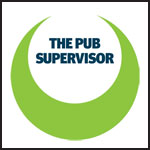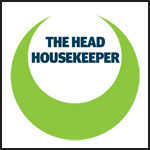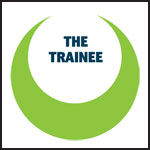Open Minds – how good is hospitality's mental health?
Last week saw the launch of Open Minds, Caterer and Hotelkeeper‘s campaign to raise awareness and fight the stigma of mental health issues in the hospitality industry. Our four-week-long drive highlights the devastating impact mental health problems can have on a person's life. Emily Manson reports
Do you think the hospitality industry takes mental health seriously? Let us know by taking part in our online survey.
The incredible stresses put on workers in hospitality are widely known. Long hours, peaks and troughs of service, kitchen heat, financial pressures - they are all factors which combine to make the industry a unique working environment.
It's well documented that many workers resort to alcohol and/or drugs to cope with the pressures. But how it affects people's mental health has been, and remains, a taboo subject.
As Penny Moore, chief executive of industry charity Hospitality Action (HA), notes: "It is not only physical problems such as alcoholism and drug addiction that people develop in this industry but mental health issues as well." She has found that, in recent years, there has been increasing demand for emotional support from the Ark Foundation, the drink-and-drugs branch of HA.
"Employers need to wake up to the fact that they have a responsibility to look after their employees' physical and mental wellbeing in an environment that is often uniquely demanding and stressful," Moore says.
And yet, talking about conditions such as stress, depression, bipolar, anxiety and psychosis is as rare as hens' teeth - even though one in six workers will suffer from it at some time in their lives.
Camilla Swain, director of mental health charity Mind, says: "Mental health problems will exist in almost every restaurant, hotel and catering company. However, in an industry where working long and anti-social hours in a high-pressure environment comes as standard, it can be incredibly hard for individuals to speak up and seek help when it's needed most.
"This is why Mind fully supports Caterer and Hotelkeeper‘s Open Minds campaign in reaching out to employers across the hospitality industry. Staff wellbeing must be a priority - it is time to stand up, take action and, most importantly, start talking."
Here, four hospitality workers share their stories of mental illness.
I'm a pub supervisor in Dorset with borderline personality disorder, depression and, originally, anorexia. I've suffered on and off since I was 15 and am now 22. I came off my medication in December, which I think is why I'm unstable at the moment.
Currently the hardest thing is the complete unpredictability of my moods. I have fear crises where I'm adamant that I'm going to die and will do anything to take my own life. Then I'm either a complete danger to myself or curled up in bed wanting to disappear. The medication helps the stability of my moods but it's not me and it's like living in a fish tank and you don't have a real sense of emotion, so it's very artificial. Life is harder being without them but at least the highs and lows make me feel like I'm really existing.
I definitely want to work but I have a bit of a love-hate relationship with it. Sometimes I use it to completely escape myself - at work you have to be happy, outgoing, bubbly and confident - and it's sometimes easier to just act that, but other times you just can't do it.
I'm in a position of authority at work, so in my own mind I don't want to be seen as vulnerable and that's when I struggle the most. It's a tricky balance, I want to work but I don't want to fall apart there - there are days when it's just broken me and days when it's helped me come out of my negative cycle - but I can never tell which days are going to be OK.
My boss is really good to me. I've been in the same job for six years and he's known me for over three so he's always known my problems. We both know I can't keep calling in sick as he has a business to run, but when I'm not working because the pressure to be "good" on certain days feels too much, he just says that "the job is always there for you, don't be a stranger, just come back when you feel better". It takes the immediate pressure off me in terms of shifts but also the future pressure of having to find a new job. That's really nice.
I'm also lucky to have really good work mates, and a couple of close friends who have jumped in when I've been in crisis. An office job does sometimes appeal, but I do like the people, the community and the support that the pub provides.
ADVICE Don't be afraid of yourself because no matter what anyone else says about you, to you or how they treat you, at the end of the day it's how you see yourself. I've been lucky at work but in other aspects of my life people haven't been so understanding, and being able to hang on to the fact that I'm me has helped.
It began as a stress reaction to something that went wrong. Anxiety came first, it's a plunging sensation like realising you're a second away from being hit by a bus. I live with that sensation every minute of every waking day. I take a lot of medication and weekly therapy sessions to cope, and am occasionally hospitalised because of muscular and diaphragmatic seizures.
The depression is worse as it affects your thoughts, the very thoughts that you need to get better. It's a "Catch 22" situation. It's a stealth killer created by a change in brain chemistry and often takes as long to get out of as it does to get into it. It feels like grief for a loved one who has died and it can weigh very, very heavily sometimes.
I spent months in the Priory just getting stabilised. Then the post-traumatic stress disorder means that lucid dreams and vivid nightmares plague me, ensuring a 24-hour cycle of torment. It's easy to get into a cycle of not wanting to sleep which just compounds my exhaustion.
All in all, I live my life like a zombie, with inner exhaustion and external smiles, functioning with the help of medication, a fantastic therapist and plenty of tranquillizers at night. There is always the constant draining exhaustion that makes you want to stay in bed all day.
I find that being in the hospitality industry helps. I need to keep busy and preoccupied with something that focuses my mind away from the background issues and triggers.
While depression is about struggling with the past, anxiety is about the future and being consumed in the moment does help. Meditation also helps to control my thoughts.
Senior figures in my company know of my illness and guide me through each day. This means that while I keep busy (working and living in the moment), and am the figurehead of my business outwardly, internally I'm a bit of a nightmare - poor memory, suspect judgement, chaotic organisation and impulsive decisions (which in itself can cause depression fuelling frustration) but we work as a team to help me understand better the realities of situations. The help of my team, though, is reactive, as although they appreciate my illness, it's beyond their comprehension.
My therapist and friends from the Priory help and I also find comfort in the church and through understanding my condition both emotionally and scientifically.
ADVICE The first signs of mental dysfunction occur when you begin to withdraw from a life you generally coped with and largely enjoyed. At this point seek medical help. If you don't, the work to get better begins to stack up. When you think you're approaching/or have passed your limit, I use the acronym "HALT" and avoid Hunger, Anger, Loneliness and Tiredness. These are really important. If I can keep these balanced, then the medication has less work to do.
Most recently, I was head housekeeper in a seaside hotel. I'd been there for four months of my six-month probation when the depression hit. I'd been put under a lot of pressure from the start of the job as it was coming up to Christmas and it was very busy. In addition, everything I did was compared with the previous housekeeper; nothing I did seemed to be good enough and I was made to feel like I never lived up to expectations. I don't think it was the actual work that contributed to my depression but the unsaid words and constant critical eye certainly contributed to the bipolar kicking in again.
I disclosed my depression when I was signed off sick for two weeks, and they made no attempt to understand, saying if I was better sooner, then I should come back earlier. But I got worse and it was the most debilitating period of depression I've ever experienced and their guilt trip didn't help matters. When I was then signed off for three months, their reaction was "that makes it very difficult for us", and there was clearly an unsaid expectation that I would resign.
I handed in my notice personally, as part of me thought they might see me and realise that I was genuinely ill and refuse to accept my notice. But they did accept it and other staff just ignored me - which was very hurtful as I was still effectively their boss.
If I'd had cancer and been signed off I'm sure people would have given me sympathy but I was made to feel like a leper. I was on the brink of a breakdown. If I had stayed in the job I think it would have tipped me over.
ADVICE If you're undiagnosed, get diagnosed. Once you know what you've got, you can learn about your illness and I found that it helped make sense of what I had been feeling. You also need to look after yourself, and not be ashamed of your illness. If people treat you wrongly, it's their fault, not yours, and at the end of the day, it's only a job - your health is much more important.
What I didn't realise was that the professional rivalry between chefs and the politics in the kitchen had led to a serious split within the brigade: all the French-speaking staff sided against the English guys. As a result of being drawn towards the Frenchman, I quickly found myself being singled out for being disloyal, or lazy, or generally sidelined from the pastry team banter while my work was constantly criticised.
All too often, my 14-hour straight shift would end with a visit to the chef's office to face a barrage of verbal abuse before going home. Every single day, I felt threatened and scared of losing my job which, in today's world, could be construed as "constructive dismissal".
I was demoted from first commis to second commis as a result of one single choux eclair not being filled with cream properly. On another occasion, I was summoned to a meeting with HR where a false allegation of "inappropriate behaviour" had been made against me by another member of the kitchen staff (who I learnt later had been pressured into this).
Despite this relentless bullying, I stayed on but by this time the stress I was feeling was unimaginable. Living alone, I cried myself to sleep at night as I contemplated the fear of another shift the next day.
To gain some relief from the pressure, I would go cycling. I found that I could take out all my anger and rage on the hills and scream out at the wind in my face as I released all the pent-up anger.
Finally, after months of unrelenting pressure, I went to the F&B manager's office and burst into tears. He was genuinely shocked. He simply didn't realise what was going on and was surprised that I had not said anything sooner.
I left after a year but the job I was meant to go to fell through. I had no way to pay the rent, and was totally broken. I lay in bed for a week and contemplated suicide. Luckily, I read Michael Caine's What's it all About?, where he, too, thinks about suicide, and it was reading about his resolve that brought me back from the brink.
ADVICE Talk to someone. Eat well, look after your body and read a biography of someone you admire. The act of reading takes your mind off your situation and may provide inspiration to rise out of the darker periods.
think you need help? Try…
Mindwww.mind.org.uk
Time To Changewww.time-to-change.org.uk
Rethink Mental Illnesswww.rethink.org
Bipolar UKwww.bipolaruk.org.uk
Samaritanswww.samaritans.orgHospitality Actionwww.hospitalityaction.org.uk
Hospitality Action has just launched a free counselling scheme for anyone in the industry who earns less than £30,000 to provide up to four counselling sessions. Call 0800 975 7141 or visit www.oasishumanrelations.org.uk for details.
E-mail your comments to Caterer News here.
Catererandhotelkeeper.com jobs
Looking for a new job? Find your next job here with Catererandhotelkeeper.com jobs
















